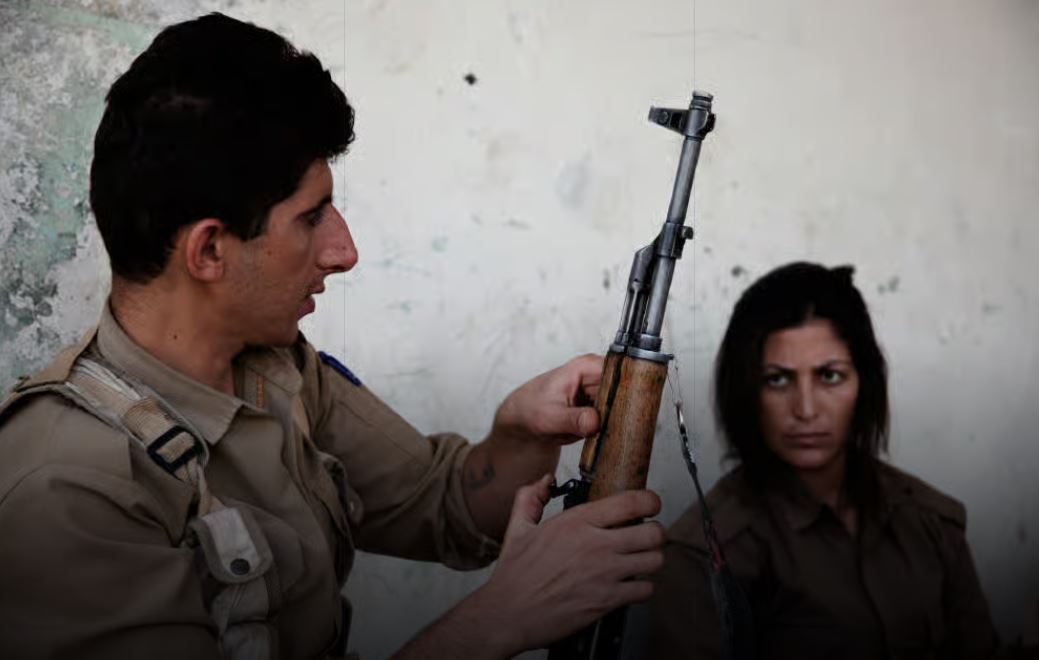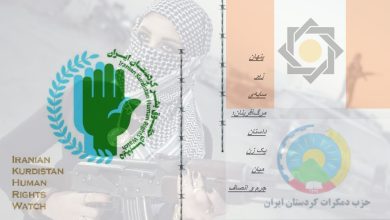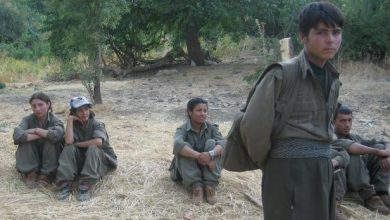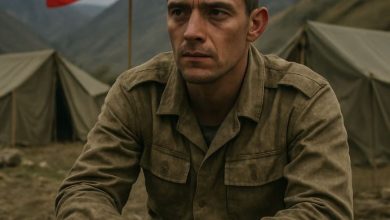At sixteen, Helya Abdollahi, a teenage girl from Sanandaj, found herself struggling with depression and isolation, a result of family poverty, illness, and addiction. In this vulnerable state, the deceptive promises of the KOMALA group, delivered via Instagram, appeared to be a glimmer of hope and freedom.
The Hidden Impact of Addiction on Families
In today’s world, addiction and its impact on family structures have become a serious social challenge. This phenomenon not only affects the individual struggling with addiction but also has devastating consequences for family members, especially children. Moreover, families experiencing addiction often suffer from poverty, instability, and long-term psychological harm.
Helya Abdollahi’s Life: A Teenage Crisis
At sixteen, Helya Abdollahi, a girl from Sanandaj, struggled with depression and isolation. Poverty, her mother’s illness, and her brother’s addiction created a heavy burden on her young life. As a result, she became vulnerable to false promises.
Early Struggles at Home
Born on December 27, 2002, Helya grew up in a family in constant crisis. Her mother was ill, her father was unable to provide care, and her brother’s severe addiction overshadowed daily life. In fact, research shows that teenagers in such environments are far more likely to face depression, anxiety, and behavioral disorders.
Family Pressures and Mental Health
The severe addiction of her brother deeply affected Helya during her teenage years. Because of this, depression took root, and she began searching for ways to escape her painful reality.
Encounter with the Armed Group
During this vulnerable stage, Helya was approached on Instagram by an armed group. At first, the group promised her emigration to Europe, language lessons, and financial stability. However, instead of helping, they exploited her weakness and used threats to deepen her fear.
The Camp Experience and Regret
After joining the group and arriving at the Zargwezalah camp, Helya immediately regretted her decision. Nevertheless, KOMALA leaders threatened her, saying that if she returned to Iran, she would be arrested, tortured, and assaulted. Therefore, she stayed out of fear.
Life Inside the Camp
The camp looked more like a prison than a community. For example, the rooms were overcrowded, dark, and unsafe. Over time, she realized she had been trapped in a massive deception with little hope of escape.
Marriage and Attempt to Leave
While at the camp, Helya met Arian Esmaeili, who had also joined under false promises. Because of their shared pain, they became close and eventually married. Yet even marriage inside the group was treated as a tool rather than a sacred bond.
Struggles to Escape
Helya wanted to leave earlier, but she faced constant obstacles. On the other hand, Arian managed to leave first. Only after his persistence did Helya finally gain permission to leave as well.
Life in Sulaymaniyah and Return to Iran
After leaving the camp, Helya and Arian lived in Sulaymaniyah for four years. They had no legal residency, no stable jobs, and very little hope. As a consequence, loneliness and poverty shaped their lives.
The Turning Point
When they discovered they were expecting a baby, their perspective changed. Ultimately, they decided to return to Sanandaj and start over with a simple but real life.
Interview with Helya Abdollahi
Childhood and Family Environment
Question: Ms. Abdollahi, please tell us about your childhood and family environment.
Answer: Honestly, from the very beginning, I never experienced a normal life. My father was old and unable to care for us. My mother was bedridden for years due to illness. But the real destruction came from my brother’s addiction. Some nights, he even brought friends home to use drugs. Imagine being a teenage girl in a house filled with strangers. Depression slowly took root in me without anyone noticing.
Lack of Support
Question: Did anyone know about your situation or try to help?
Answer: No. I was not a priority for anyone—not at school, not among relatives, not even neighbors. As a result, I believed I had to save myself. At sixteen, with no experience, I turned to the internet and social media as my escape.
First Contact with KOMALA
Question: How did your contact with the KOMALA group begin?
Answer: Through Instagram. At first, they asked about my dreams and problems. Gradually, the conversations became psychological games. They told me I deserved freedom, that they would send me to Europe, and that I could build a new life. For a girl my age, these words felt like light in the darkness.
Age and Recruitment
Question: Were they aware of your age?
Answer: Yes, they knew I was only sixteen. Instead of warning me, they told me not to mention it to anyone. Later, I realized this was their common method for recruiting vulnerable teenagers.
Life at the Camp
Question: Were the promises true once you arrived?
Answer: Not at all. The camp was dark, crowded, and unsafe. Very soon, I realized I had been deceived. I wanted to leave, but they threatened me with prison, torture, and even sexual assault if I returned to Iran.
Meeting Arian
Question: Did you become close to anyone there?
Answer: Yes, I met Arian Esmaeili. He had also been deceived. Our shared pain brought us together. Eventually, we got married, though it was only verbal and controlled by the group leaders.
Decision to Leave
Question: What made you decide to leave?
Answer: Life there was unbearable. Arian left first, and after his persistence, I was allowed to leave a month later.
Life After the Camp
Question: What did you do after leaving?
Answer: We went to Sulaymaniyah, but life was extremely hard. We had no residency or support. Nevertheless, we endured four years of poverty and loneliness.
Returning to Iran
Question: Why did you decide to return?
Answer: We were exhausted. Eventually, the news of our child gave us strength to return to Sanandaj and build a new, ordinary life.
Final Advice
Question: Now that you’ve returned, what message do you have for other teenage girls?
Answer: I would tell them one thing: No one on the internet will save you. If something sounds too good, it is usually dangerous. No one has the right to exploit your loneliness.






